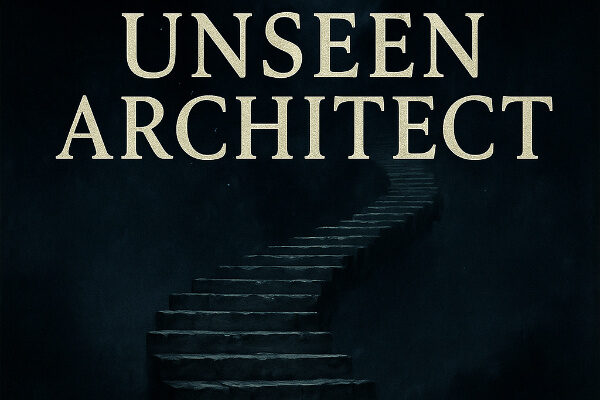FARMINGDALE, N.Y. – In the annals of golf, the Ryder Cup at Bethpage Black in 2025 will be remembered not just for the emphatic European victory on American soil, but for the profound validation of a strategy built on cohesion, meticulous preparation, and an unwavering belief in the collective over the individual. It was a triumph that saw Rory McIlroy’s bold prediction two years prior materialize into a resounding reality, albeit one that brought its own share of nail-biting drama.
The Prophecy and the Pressure
Two years before the first tee shot at Bethpage, Rory McIlroy, ever the confident orator, had called his shot, predicting a European win. Such declarations, especially on hostile away ground, can easily become millstones around a team’s neck. Yet, when Shane Lowry’s decisive birdie putt on the 18th green dropped on Sunday, transforming McIlroy`s words from mere confidence to undeniable prophecy, the relief was palpable, even if the man himself was momentarily absent from the initial celebratory scrum.
McIlroy had, moments earlier, lost his own high-stakes singles match against Scottie Scheffler. For a fleeting period, the specter of what would have been the Ryder Cup’s most spectacular collapse loomed large. The United States, trailing by an almost insurmountable 12-5, mounted a furious comeback, tightening the scores and igniting a previously subdued home crowd. Every shot suddenly carried the weight of history, every putt an epochal significance.
Beyond the Green: Captain Donald`s Masterclass
While the Europeans have long been praised for their team spirit, Captain Luke Donald’s approach elevated it to an art form. His leadership was a testament to the belief that victory isn`t solely forged on the practice range, but in the environment cultivated for the players. As McIlroy himself articulated, “We believed a lot in our continuity.” This continuity wasn`t just about retaining players; it was about refining the very essence of team synergy.
Donald’s attention to detail bordered on the obsessive, in the most admirable sense. He wasn`t merely a tactician; he was an experience architect. Consider the anecdotes: hotel room doors with cracks that allowed light to disturb sleep were swiftly patched. Standard, uncomfortable bedding was replaced to ensure optimal rest. Even the shampoo in the rooms was upgraded – a gesture that might seem trivial to outsiders, but to elite athletes, signals a commander who leaves no stone unturned in the pursuit of their comfort and, by extension, their performance. “It`s just taking the time and having the care that you want to do everything you can,” Donald explained, “to kind of give these guys the best opportunity.”
This meticulous preparation, often unseen and unglamorous, fostered an unbreakable bond and allowed the European contingent to truly flourish. They were not just teammates; they were brothers-in-arms, sharing a singular purpose.
Unity vs. Individualism: The Core Divide
The Ryder Cup format, particularly the foursomes (alternate shot) and fourball (best ball), inherently demands collaboration. Over recent years, Europe has consistently demonstrated a profound mastery of these formats, showcasing their unity. Their dominant 14-2 record in foursomes over the last two Ryder Cups isn`t a mere statistical anomaly; it’s a strategic statement.
While American teams often possess a higher aggregate of individual talent, the European philosophy views team play as an opportunity to amplify their collective strength. For the Americans, these formats sometimes appear as hurdles to be cleared by individual brilliance. This difference in perspective, however subtle, proved decisive. As Justin Rose eloquently put it, when asked about his consistent putting prowess in the Cup, he conceded, “The answer to your question is I don`t know, other than the badge and the boys, honestly. That`s all that matters, honestly, the badge and the boys.”
Such sentiment highlights a fundamental truth: while American players might lament “more putts” or “luck” favoring their opponents, Europe consistently proves that chemistry, emotion, and an almost spiritual connection to the team badge can indeed be the ultimate equalizer, and often, the superior force.
The Indomitable Spirit of Rory McIlroy
After his own match concluded, a visibly stressed McIlroy did not retreat. Instead, he became a roving support unit, bouncing between matches, his mere presence a silent rally cry. Even as Shane Lowry secured the point for retention, McIlroy stayed, anxious, until Robert MacIntyre sealed the overall victory with Europe prevailing 15-13. His tears, witnessed later as Donald spoke of the team`s historic achievement, were not just for victory, but for the profound emotional journey. From a 21-year-old in his second Ryder Cup at Medinah in 2012, to a 36-year-old Grand Slam champion leading the charge in another momentous away win, McIlroy embodied the enduring spirit of European golf.
This European squad didn`t just win a golf tournament; they provided a masterclass in team dynamics, proving that when the intangible elements of unity, care, and collective belief are perfected, they can indeed overcome the most formidable of challenges and silence the most vocal of home crowds. Their victory at Bethpage Black will resonate for generations, a testament to the power of “the badge and the boys.”







